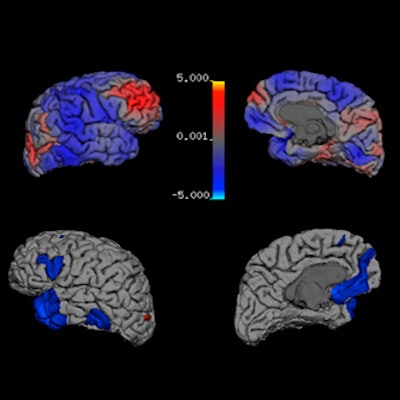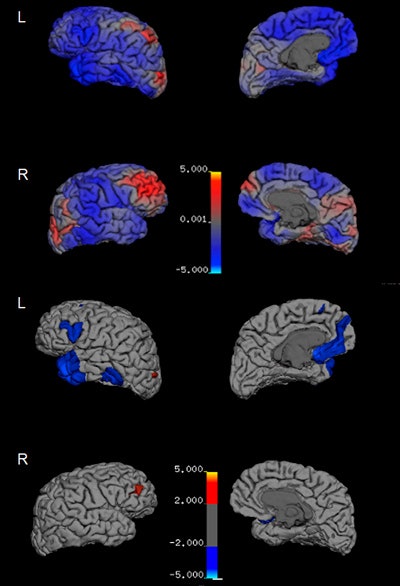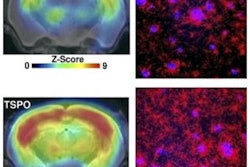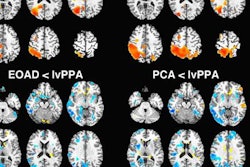
A new PET tracer, F-18 T807, has shown efficacy for diagnosing concussion-related brain degeneration for the first time in a live subject, according to a proof-of-concept study published online September 27 in Translational Psychiatry.
Researchers at Mount Sinai in New York City used T807 (also known as AV-1451) with PET to image the brain of a living 39-year-old former professional football player who experienced 22 concussions during his career. He also has shown clinical symptoms associated with chronic traumatic encephalopathy (CTE), a neurodegenerative brain disease that has been linked to repetitive head trauma.
T807 is designed to highlight tau protein that accumulates in the brain as a result of repetitive traumatic brain injury; tau protein has been linked to CTE and the progression of dementia and Alzheimer's disease. Until now, confirmation of CTE pathology has only been possible by examining brain tissue in an autopsy.
First author Dara Dickstein, PhD, colleagues are now studying 24 patients and plan to commence a clinical trial early next year to evaluate T807's ability to identify CTE patients who might respond to an antitauopathy medicine. The medicine is currently being evaluated at other medical centers for use in patients with Alzheimer's disease and other neurodegenerative disorders.
 Maps show percentage change in cortical thickness from 2011 to 2015 across brain hemispheres. Top panel displays changes in thickness from 0% to 5% with no cutoff. Bottom panel shows changes in thickness greater than 2%. Image courtesy of Translational Psychiatry.
Maps show percentage change in cortical thickness from 2011 to 2015 across brain hemispheres. Top panel displays changes in thickness from 0% to 5% with no cutoff. Bottom panel shows changes in thickness greater than 2%. Image courtesy of Translational Psychiatry.The findings suggest that T807 may become the first biomarker for detecting CTE through tau imaging, said Dr. Howard Fillit, founding executive director and chief science officer at the Alzheimer's Drug Discovery Foundation, which is funding the research. It may also help researchers better understand the similarities in disease processes between CTE, Alzheimer's, and other neurodegenerative disorders, as well as determine whether repeated head injuries can lead to the onset of Alzheimer's, he said in a statement from Mount Sinai.
This study is not the first using T807 with PET: Researchers from Washington University in St. Louis found elevated levels of T807 in the hippocampus and cortical brain regions associated with Alzheimer's disease. The findings suggest that it takes a combination of tau deposits and beta-amyloid plaques for the neurodegenerative disease to progress.
T807 also received attention at this year's Society of Nuclear Medicine and Molecular Imaging (SNMMI) conference. German researchers used the PET tracer to measure amyloid plaques, tau tangles, and metabolic activity in the brains of living Alzheimer's patients and were awarded SNMMI's Image of the Year.




















